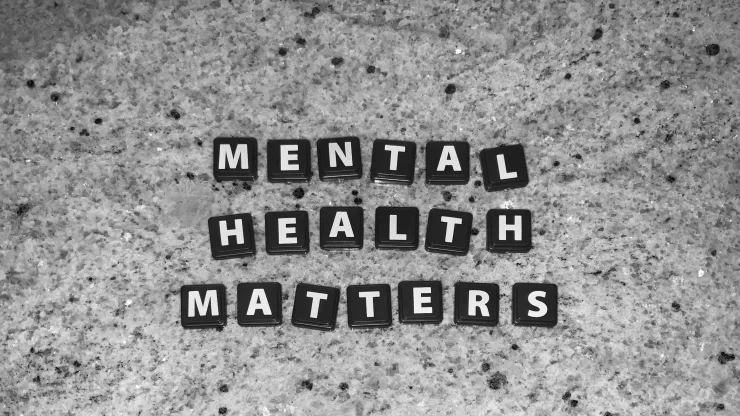As we navigate our daily lives, it’s easy to get bogged down by negative self-talk and stressful thoughts. These mental barriers can impact our overall well-being and quality of life.
However, there is a simple tool that can help us overcome these challenges and empower our minds: affirmations.
In this article, we’ll explore what affirmations are, how they can benefit our mental health, and provide tips for effectively using them in our daily routines.
Jump to Section
Understanding Affirmations for Better Mental Health
What are affirmations?
Affirmations are positive statements that can help reframe negative thoughts and beliefs. They are designed to shift our mindset towards a more positive and constructive outlook.
Affirmations can be used to promote self-love, improve self-esteem and confidence, and reduce stress and anxiety.
By repeating affirmations regularly, we can train our minds to focus on the positive and release negative energy.
How can affirmations impact mental health?
Affirmations can have a powerful impact on our mental health by promoting positive thoughts and emotions. When we repeat affirmations, we activate the reward centers in our brains, which can reduce stress and anxiety.
Affirmations can also improve our self-esteem, which can lead to better mental health outcomes overall. Additionally, affirmations can help us develop better coping mechanisms for dealing with difficult situations.
Benefits of Using Affirmations for Mental Health
Improved self-esteem
Affirmations are a powerful tool for improving self-esteem. When we repeat positive affirmations, we reinforce positive beliefs about ourselves.
This can help us feel more confident and self-assured. Positive self-talk can also help us overcome negative self-talk that can be damaging to our mental health.
Reduced stress and anxiety
Repeating affirmations can reduce stress and anxiety by promoting positive thoughts and emotions. When we focus on positive affirmations, we activate the reward centers in our brains, which can reduce the production of stress hormones.
Additionally, affirmations can help us develop better coping mechanisms for managing stress and anxiety.
Increased positivity and optimism
Affirmations can increase positivity and optimism by shifting our mindset towards a more positive outlook. When we repeat affirmations regularly, we train our brains to focus on the positive aspects of our lives.
This can help us develop a more optimistic and hopeful perspective.
Better coping mechanisms
Affirmations can help us develop better coping mechanisms for dealing with difficult situations. By focusing on positive affirmations, we can train our minds to approach challenges with a more positive and constructive mindset.
This can help us overcome obstacles and bounce back from setbacks more easily.
How to Use Affirmations Effectively
Identify your negative self-talk
To effectively use affirmations, it’s important to identify your negative self-talk. These are the thoughts and beliefs that hold you back and impact your mental health.
Once you’ve identified these negative patterns, you can work to reframe them with positive affirmations.
Choose affirmations that resonate with you
Choose affirmations that resonate with you personally. These are statements that you truly believe and that align with your values and goals.
By choosing affirmations that are meaningful to you, you’re more likely to stick with them and see positive results.
Repeat affirmations consistently
To see positive results, it’s important to repeat affirmations consistently. This means repeating them daily, ideally in the morning and evening.
Set aside a designated time each day to focus on your affirmations and make them a priority.
Visualize the affirmations
Visualizing your affirmations can help reinforce positive beliefs and emotions. Take time to imagine yourself embodying your affirmations and experiencing the positive outcomes they represent.
This can help you stay motivated and focused on your goals.
Incorporate affirmations into daily routine
Incorporate affirmations into your daily routine to make them a habit.
This can be done by adding them to your morning or evening routine, incorporating them into your meditation practice, or writing them down in a journal.
By integrating affirmations into your daily routine, you’ll be more likely to stick with them and see positive results.
Types of Affirmations for Mental Health
General affirmations for overall mental health
General affirmations for mental health focus on promoting positive thoughts and emotions. These affirmations can be used to increase self-esteem, reduce stress and anxiety, and promote positivity and optimism.
Examples include:
- I am worthy of love and respect.
- I trust in my ability to overcome challenges.
- I am grateful for all the positive aspects of my life.
Affirmations for specific mental health concerns
Affirmations can also be tailored to specific mental health concerns. These affirmations can help address anxiety, depression, and other mental health conditions.
Examples include:
- I trust in my ability to manage my anxiety.
- I am worthy of love and acceptance, even with my depression.
- I choose to focus on positive thoughts and outcomes.
Affirmations for self-love and self-acceptance
Affirmations for self-love and self-acceptance can help improve self-esteem and promote positive self-talk. Examples include:
- I love and accept myself unconditionally.
- I am worthy of love and respect, just as I am.
- I choose to focus on my strengths and positive qualities.
Comparison Chart of Different Types of Affirmations
| Type of Affirmation | Focus | Examples |
|---|---|---|
| General | Overall mental health | I am worthy of love and respect. |
| Specific | Address specific mental health concerns | I trust in my ability to manage my anxiety. |
| Self-love and self-acceptance | Promote positive self-talk | I love and accept myself unconditionally. |
Examples of Affirmations for Better Mental Health
Positive self-talk affirmations
- I am worthy of love and respect.
- I trust in my ability to overcome challenges.
- I am grateful for all the positive aspects of my life.
Stress-reducing affirmations
- I choose to focus on positive thoughts and outcomes.
- I release all negative energy and tension.
- I trust in my ability to manage stress and anxiety.
Gratitude affirmations
- I am grateful for all the love and support in my life.
- I choose to focus on the positive aspects of my life.
- I am grateful for the opportunity to learn and grow.
Top 10 Affirmations for Mental Health
- I am worthy of love and respect.
- I trust in my ability to overcome challenges.
- I love and accept myself unconditionally.
- I choose to focus on positive thoughts and outcomes.
- I am grateful for all the positive aspects of my life.
- I trust in my ability to manage my anxiety.
- I am worthy of love and acceptance, just as I am.
- I release all negative energy and tension.
- I am worthy of success and happiness.
- I choose to focus on my strengths and positive qualities.
Overcoming Barriers to Using Affirmations
Doubt and skepticism
It’s normal to feel skeptical about the effectiveness of affirmations. To overcome doubt and skepticism, start with small, achievable affirmations and focus on the positive results you see over time.
Time constraints
Incorporating affirmations into your daily routine can feel overwhelming if you’re short on time. To overcome time constraints, start by incorporating affirmations into your existing routines, such as your morning or evening routine.
Resistance to change
Resistance to change is a common barrier to using affirmations. It can be uncomfortable to challenge our negative self-talk and replace it with positive affirmations.
To overcome this resistance, start slowly and be patient with yourself. Remember that change takes time and practice.
Lack of belief in affirmations
If you don’t believe in the affirmations you’re using, they’re unlikely to have a positive impact. Choose affirmations that resonate with you and that you truly believe in. If an affirmation doesn’t feel right, modify it or choose a different one that aligns with your values and beliefs.
Conclusion: Empower Your Mind with Affirmations
In conclusion, affirmations are a powerful tool for improving mental health. They can help us reframe negative self-talk, improve self-esteem, reduce stress and anxiety, and promote positivity and optimism.
By understanding what affirmations are, how they can benefit our mental health, and how to use them effectively, we can empower our minds and improve our overall well-being.
Remember, the journey to better mental health is a personal one, and what works for one person may not work for another.
It’s important to find the strategies and tools that work best for you.
If you’re struggling with your mental health, don’t hesitate to seek professional help.

With a deep passion for personal development, Ben has dedicated his career to inspiring and guiding others on their journey towards self-improvement.
His love for learning and sharing knowledge about personal growth strategies, mindfulness, and goal-setting principles has led him to create My Virtual Life Coach.
Contact Ben at [email protected] for assistance.




